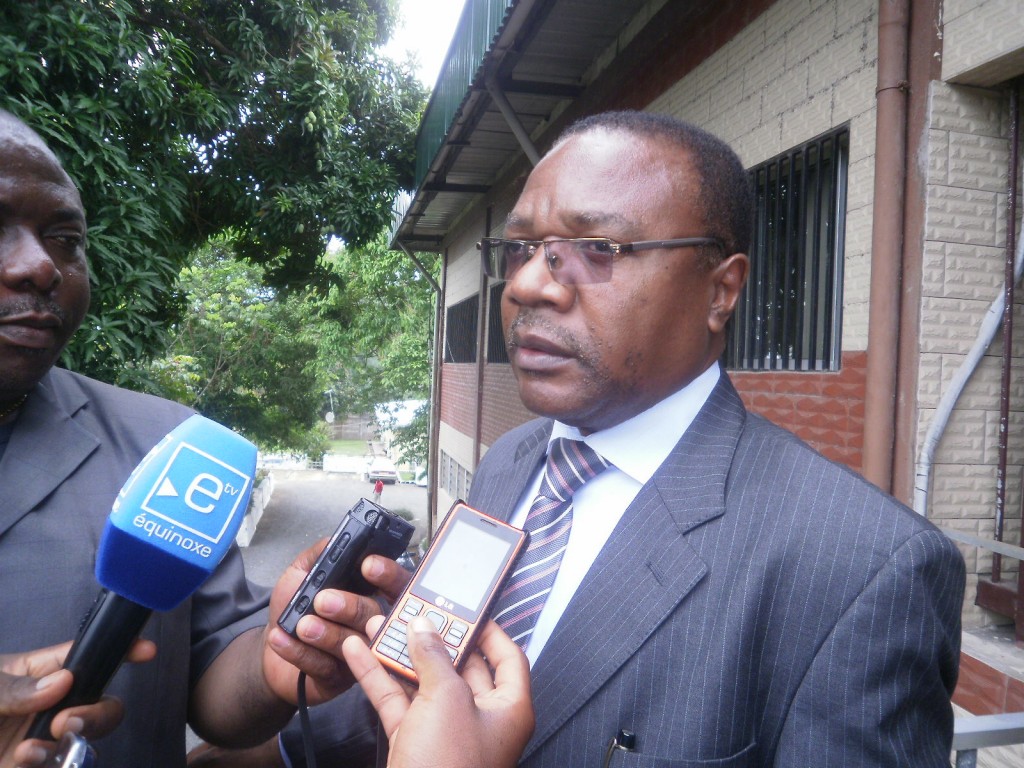Walter Nana
Buea, Cameroon
The Southwest Regional Coordination Meeting for the Delegation of Public Health has just ended in Buea. It is the first quarter for 2014. Placed on the theme; Improving The Quality Of Health Service Delivery, Dr. Victor Mbome Njie, Southwest Regional Delegate of Public Health, his closed collaborators, the 18 District Medical Officers, DMOs and other health stakeholders in Region discussed their problems and successes. In this exclusive interview, Dr. Mbome Njie says they are ready to surmount their challenges and move on to work closer with the Traditional Birth Attendants making inroads in the health sector across the Region.
Excerpts:
What is the Coordination Meeting of the 18 Health Districts of the Southwest Region all about?

Dr. Victor Mbome Njie, Southwest Regional Delegate of Public Health - We Must Work Hand-In-Glove With Traditional Birth Attendants
It is the first quarter meeting for 2014 for the 18 health districts in the Southwest Regional Delegation of Public Health. The Coordination Meetings are activities, which are planned. In our annual plans, we have four coordination meetings. The Coordination Meetings bring together the 18 District Medical Officers, DMOs, Directors of District Hospitals and Directors of the Training Schools, who came in for the first time and other senior personnel of public health in the Region. We come to take stock of what we did in the last quarter, look at the challenges, how far we have gone and see where we are lagging. We make efforts to arrive at collegiate resolutions, so that we come out with a common platform.
How much improvement is your delegation making in the delivery of healthcare services in the Southwest Region?
We are working with the road map put in place by Cameroon’s Ministry of Public Health. We are collecting data from the field, reporting to hierarchy what is happening on the ground and from our last quarter reports, we are performing well on the various vaccination campaigns. A performance, which has gone beyond the expectations from the national level. We have some challenges covering deliveries, catching the number of assisted deliveries in the Region, maternal mortality is on the rise, across the country, but in the Southwest Region, we are making a lot of efforts to stand up to the challenges. We have difficulties accessing some districts because of absence of communication technology and poor road facilities in areas like Akwaya, Bakassi and Mundemba. We have Traditional Birth Attendants in the field who are doing lots of deliveries but they are not assisted.
How are you handling the difficulties?
We have taken a resolution after this coordination meeting for the District Medical Officers to go back to their areas of operations and do a census of all the Traditional Birth Attendants. It is important, we have to work with them. Once we can identify them, we can work hand-in-glove, encourage them, school them so that we can be able to know what is happening. That will help us with the challenge to reduce maternal mortality.
From the Coordination Meeting, there are indications that the Mutual Healthcare Schemes seem to be problematic?
Yes, it is a factual statement. Mutual Health benefit rate is still below 10%. We are working with GIZ, the German Cooperation Department. The Kumbo Mutual Health for example has recorded significant gains and it is already sustainable. GIZ is carrying out some studies out there in Kumbo and we look forward to see what we can learn from them, which can be useful in the Southwest Region. The issue is, we still need a lot of health education, people must be schooled, we still have the challenge of people changing attitudes, people are still to come to terms with the fact that we can prevent losing someone in the family with just an expenditure of FCFA 4,000 to get enrolled in the Mutual Health Fund. But if you look at what it takes to bury an individual in the family, we spend huge sums of money organising funeral and burials. It is a national problem, we must sit together and source for ideas on how to better educate the our population that we can spend less in taking care of our health than what it takes to bury the person. At the national level, we should begin a deep reflection on how to source for alternative funding for healthcare delivery.
Your expectations after this first coordination meeting for 2014?
The challenges on the field motivate us to work harder. The little gains we make, each time we sit together, gives us some satisfaction. We are not giving up because we have the responsibility to improve on the health of our population and it is our mission to always do it. I will add that prevention is better than cure. We still spend big sums of money burying the dead and spend little preventing death.
Interviewed by Walter Wilson Nana



